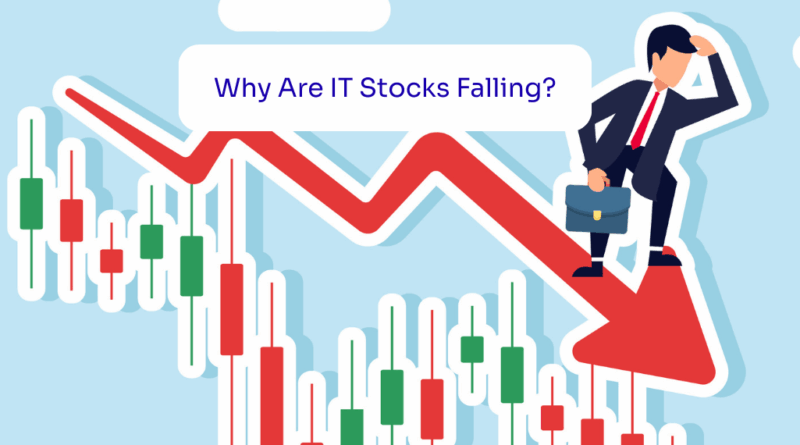H-1B Visa Fee Hike Hits Indian IT Stocks Hard
Monday saw Indian domestic indices suffer a significant dip, with the blow primarily falling upon IT stocks. This downward trend emerged despite possible benefits from GST reforms. The business environment felt a ripple effect from the United States decision to hike the H-1B visa fee to a staggering $100,000. Indian IT corporations, many of which are dependent on these visas for their operations, now face a potential surge in operational expenditures.
As the day progressed, both the Sensex and Nifty 50 experienced substantial declines of 475 points and 115 points respectively. The Sensex recovered slightly from the day’s low and traded around 213.24 points lower (a 0.26% dip) at 82,412.99 around 1.20 pm, compared to a previous close of 82,626.23.
Adding to this, the Nifty 50 fell by 42.30 points or 0.17%, settling at 25,284.75 against the former close figure of 25,327.05. Market trends also indicated a decrease for both the smallcap and midcap indices, with reductions of 0.45% and 0.02% respectively.
While the performances of each sector demonstrated mixed results, IT stocks continued their downward spiral with a drop of about three percent. Losses impacted several sectors, with telecommunication, pharmaceuticals, healthcare, and consumer durables registering a downturn.
In contrast, the realty sector displayed some resilience with a modest gain of 1%. Despite the wider slump, sectors such as media, metal, banking, auto, and oil & gas proved to be robust, showcasing signs of stability within the changing market conditions.
Certain stocks saw improved performance due to potential boosts from GST reforms. Notable examples included Adani Enterprises, Bajaj Auto, Eternal, Adani Ports, and Hero Motocorp. These companies led the movement of gainers on the Nifty 50 during this trading session.
Conversely, renowned IT companies like Tech Mahindra, TCS, Infosys, Wipro, and HCL Tech faced downward streaks as major underperformers in the market. The decrease in IT stocks was indicative of the impact of the increased H-1B visa cost.
At the time of writing, over 3,000 stocks had been traded on the National Stock Exchange. Out of these, approximately half (1,535) closed with a falling trend, while 1,429 advanced, and the status of 116 remained unaltered.
The stock market witnessed 102 stocks reaching their highest point in the past year, marking their 52-week high. This list incorporated companies like Grasim Industries, Hyundai, JSW Steel, and Canara Bank. Conversely, 39 stocks plummeted to their annual lows.
The day also saw midcap stocks such as HUDCO, Aditya Birla Fashion, MRF, Muthoot Finance, and Paytm gaining between 2-5%. However, others like Mphasis, Persistent Systems, Coforge, Glenmark, and Voltas fell by 3-4%.
In the smallcap segment, upswing was observed in Hindustan Copper Anant Raj, NBCC (India), GRSE, and PEL as they witnessed a rise of 3-7%. Meanwhile, Zensar Tech, Cyient, Sagility, IKS and Lal Path Labs experienced a decline between 3-4%.
Despite the prevalent bearish trend, some names held firm. For instance, Adani group stocks, specifically Adani Enterprises, showed a strong face amidst the downturn. Adani Power, Adani Total Gas, and Adani Green shares on the BSE rallied between 9 to 20%.
Moreover, Borosil Renewables and AWL managed notable gains, boosting their values by 7-8%. However, not all were fortunate. Companies such as Zydus Wellness, Mphasis, Cartrade, Zensar Tech, and Alivus succumbed to the market pressure, all losing a little more than 4% on trading day.

